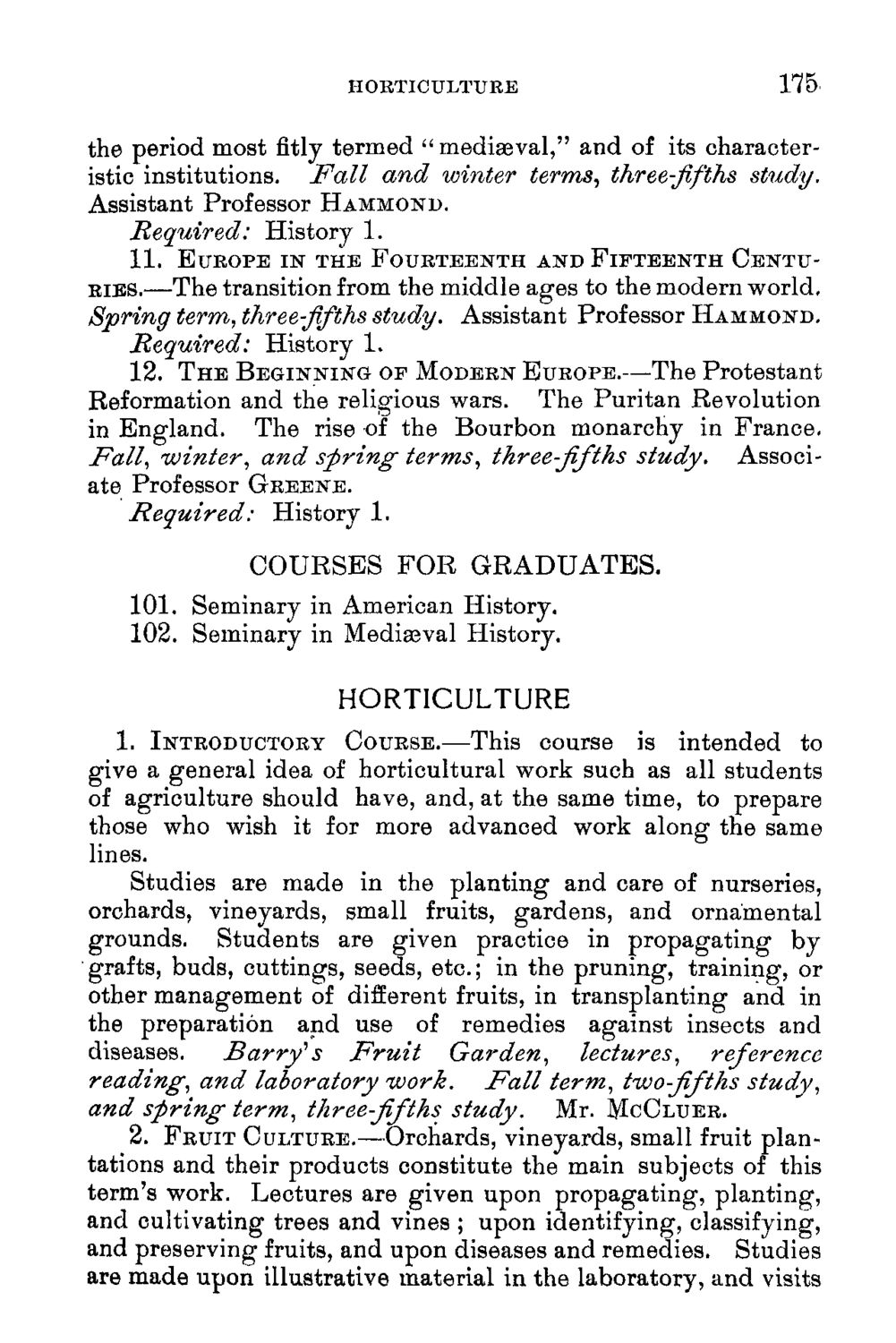| |
| |
Caption: Course Catalog - 1895-1896
This is a reduced-resolution page image for fast online browsing.

EXTRACTED TEXT FROM PAGE:
HORTICULTURE 1*75 the period most fitly termed " medieval," and of its characteristic institutions. Fall and winter terms, three-fifths study. Assistant Professor HAMMOND. Required: History 1. 11. EUROPE IN THE FOURTEENTH AND FIFTEENTH CENTU- RIES.—The transition from the middle ages to the modern world. Spring term, three-fifths study. Assistant Professor HAMMOND. Required: History 1. 12. THE BEGINNING OP MODERN EUROPE.—The Protestant Reformation and the religious wars. The Puritan Revolution in England. The rise of the Bourbon monarchy in France. Fall, winter, and spring terms, three-fifths study. Associate Professor GREENE. Required': History 1. COURSES FOR GRADUATES. 101. Seminary in American History. 102. Seminary in Mediaeval History. HORTICULTURE 1. INTRODUCTORY COURSE.—This course is intended to give a general idea of horticultural work such as all students of agriculture should have, and, at the same time, to prepare those who wish it for more advanced work along the same lines. Studies are made in the planting and care of nurseries, orchards, vineyards, small fruits, gardens, and ornamental grounds. Students are given practice in propagating by grafts, buds, cuttings, seeds, etc.; in the pruning, training, or other management of different fruits, in transplanting and in the preparation and use of remedies against insects and diseases. Barry's Fruit Garden, lectures, reference reading, and laboratory -work. Fall term, tivo-fifths study, and spring term, three-fifths study. Mr. MCCLUER. 2. FRUIT CULTURE.—Orchards, vineyards, small fruit plantations and their products constitute the main subjects of this term's work. Lectures are given upon propagating, planting, and cultivating trees and vines ; upon identifying, classifying, and preserving fruits, and upon diseases and remedies. Studies are made upon illustrative material in the laboratory, and visits
| |